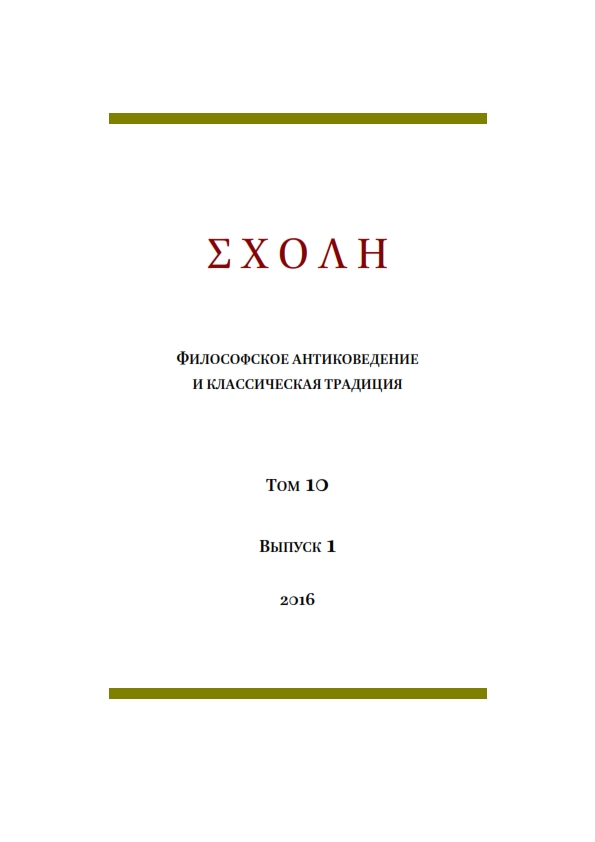ЭЛЕМЕНТЫ АРИСТОТЕЛЕВСКОЙ ДОКТРИНЫ О РОСТЕ И РАСТУЩЕМ У ОРИГЕНА, МЕФОДИЯ ОЛИМПИЙСКОГО И ГРИГОРИЯ НИССКОГО
ELEMENTS OF ARISTOTELIAN DOCTRINE OF GROWTH AND GROWING IN ORIGEN, METHODIUS OF OLYMPUS AND GREGORY OF NYSSA
Author(s): Valery V. PetroffSubject(s): Metaphysics, Ancient Philosphy, Philosophy of Middle Ages, Philosophy of Religion
Published by: Новосибирский государственный университет
Keywords: Origen; Alexander of Aphrodisias; Methodius of Olympus; Gregory of Nyssa; growth and growing; eidos of the body; corporal identity; risen body,
Summary/Abstract: The paper treats Origen’s reception of Alexander of Aphrodisias’ arguments concerning growth and growing. It is shown that Origen uses the reasoning and examples used by Alexander, in his doctrine of the risen body. Taking the principle that the form (eidos) of the body experienced quantitative change remains the same, Origen tries to prove that even if a resurrected body possesses different material substrate, the remaining identity of its eidos (“appearance”) allows to postulate the identity of the former (earthly) body and the new risen body. At the same time, Origen neglects two premises, crucial in the Peripatetic framework which produced the doctrine of growth and growing. First, enmattered eidos could not be separated from its material substrate. Secondly, only the remaining continuity of the substrate, absent in the case of the resurrection, allowed to affirm not only indistinguishability but also the identity of the risen body. Methodius of Olympus’ criticism of Origen’s doctrine is also considered, together with an example of Gregory of Nyssa’s inefficient recourse to this Origenian concept.
Journal: ΣΧΟΛΗ. Философское антиковедение и классическая традиция
- Issue Year: X/2016
- Issue No: 1
- Page Range: 132-145
- Page Count: 14
- Language: Russian

